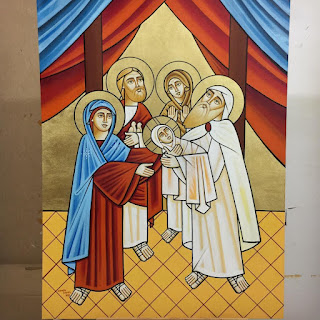Between the Resurrection and the Resurrection
Reflections on 1 John 3.1-7
RCL Easter 3B
14 April 2024
Parish of Saint Stephen the Martyr
Burnaby BC
In last week’s sermon I mentioned that this year will mark the forty-third anniversary of my ordinations to the transitional diaconate and to the presbyterate. Some of you, I know, have been active in the life of the church as long or perhaps longer than I. We have witnessed so many changes in the church.
· We have witnessed the church embracing the remarriage of divorced Christians and the marriage of LGBTQ couples.
· We have witnessed the full inclusion of women in both lay and ordained ministries.
· We have witnessed a decline in public participation in congregations even as congregations have embraced taking care of their neighbourhoods by doing justice, loving kindness and walking humbly with our God.
· We have witnessed our still on-going effort to build reconciling relationships with Aboriginal communities and to restore right relationships with all our neighbours and with the earth, ‘our fragile island home’.
The church into which I was baptized seventy-one years ago, in which I was confirmed fifty-nine years ago and for whose service I was ordained forty-three years ago is not the church of my grandparents and not, in many ways, the church of my parents. And I am convinced that the church as it is now is not the church that our children and our grandchildren will know. And I am at peace with this because I believe that Christians are always living in ‘the already but not yet’ of God’s promised renewal of creation through the resurrection of Christ and the work of the Holy Spirit.
This is the same faith that the writer of 1 John is sharing with his audience. His community was living in as turbulent and challenging a social, political and religious climate as ours. The cradle of Christian faith, what we now know as Israel and Palestine, was caught between the Roman Empire and the non-Roman imperial powers to the east. Jerusalem had been besieged and destroyed by the Roman army in 70 ce and would be besieged and destroyed again in 135 ce. Those who believed in Jesus as the risen Messiah, at this time mostly Jews living in the Middle East, were being thrown out of their synagogues, were being considered as potential threats to Roman political authority and were experiencing internal conflicts over what it means to confess Jesus as Lord.
To them the writer of 1 John, sometimes called ‘the Elder’, shares wisdom for our times as well.
· Because God so loved this world, matter, the physical stuff of the kosmos, matters. Therefore, the choices you and I make, the loves we nurture and the wrongs we strive to right, matter to God.
· Abiding in sin means knowing what we are called to be and to do but choosing not to turn aside from this calling. Knowing what we are called to be and to do and striving to be and to do these things but falling short is simply our human reality. God’s question is whether when we fall we will repent and return to the way of Jesus.
· We are and we are not yet God’s children. Our identity as God’s children is actual and also potential, just as we recognize our own children are but are not yet fully who they are to become.
· This is a message of hope not despair. Even as we acknowledge that our world is not yet as we would hope it to be, not yet the world as God envisions it, we can affirm and proclaim that God is not yet finished. Creation, as the saying goes, is a work in progress.
You and I are witnesses to these affirmations. But we are more than witnesses; we are also co-workers with God in bringing God’s vision into fruition. Our wounded God, disabled and yet divine, has given us faith to see that vision pierced and embodied in Christ, who stands among us, feeding us forgiveness and empowering us through the Spirit to be who we are and who we are yet to become, the children of God, the first fruits of a new creation – within our sight even if not yet within our grasp.

